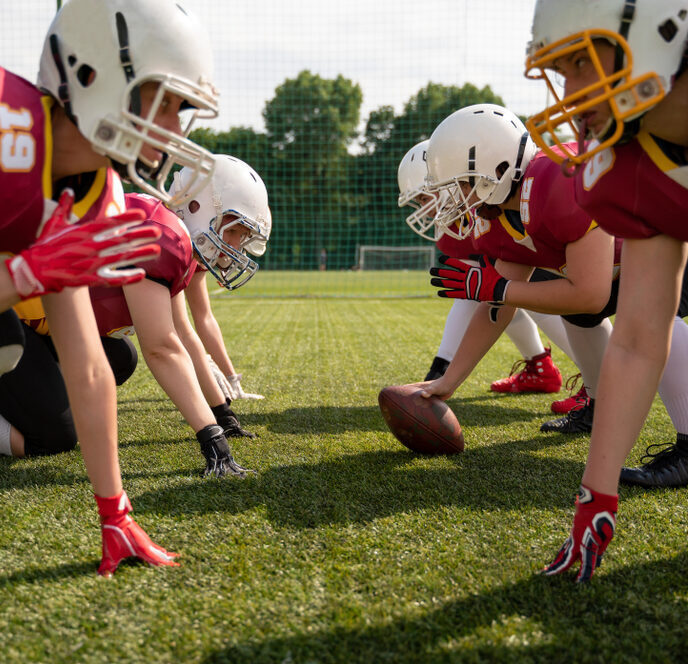
Featured Doctor
Demetris Delos, MD
Dr. Delos is a sports medicine surgeon at Orthopaedic & Neurosurgery Specialists (ONS), specializing in knee, shoulder and elbow conditions.
View Profile

Sports are often an important aspect of a high schooler’s life. Sports participation promotes teamwork skills, a sense of belonging, a drive to be successful and, of course, staying active. With all of these benefits, however, comes the risk of injury.
In high school football, different injuries tend to present during different periods of the season. During training camp, many injuries are due to deconditioning. We see a lot of hamstring and calf strains as well as dehydration during participation, which can lead to cramping or more serious issues.
Once the season is underway, we typically treat more ankle sprains and contusions or bruises. On the more severe end of the spectrum, there can be fractures such as of the clavicle (collarbone), shoulder dislocations, or knee ligament injuries including MCL and ACL tears.
Even professional players who are likely in peak shape can be unprepared for the rigors of training camp. While you may work out in the weight room or run sprints in the offseason, it’s important to build up your conditioning to the level that you need to play safely every day.
Here are some tips to minimize the risk of injury for football players:
Give yourself time to acclimate to playing competitive football – it’s never good to go to maximum exertion from the very start. Typically, those who run into the most medical issues are those who have not done much training throughout the summer. Even adolescents need to be conditioned to keep their mechanics and spatial orientation in top shape.
Incorporate an ACL injury prevention program before practice. When done consistently, these 10-15 minutes of exercises have been shown in many studies to reduce the risk of ACL injuries by nearly half. I believe this is our best defense against ACL tears.
Keep up with cardiovascular training as a fatigued body is more likely to be susceptible to injury.
Learn the proper tackling techniques to prevent against concussions. We have seen that limiting contact in practice results in reducing the risk of concussions. Exposure amount is one of the biggest risk factors for head trauma.
Be honest with yourself as you know your body best. If you experienced an injury or feel that something isn’t right, you may need to take a break. Those who push through pain or go back into a game after a shoulder dislocation, for example, are at higher risk for re-injury which requires more complicated surgery and yields poorer outcomes. Everything in the body is connected so if you play on an injured joint, you run the risk of injuring the neighboring joints.
As with all collision sports, anything can happen on the field. You can do everything right and simply be at the wrong place at the wrong time. The best thing is not to only play tough, but to play smart.






